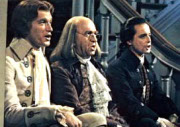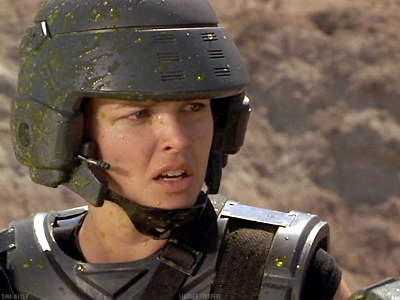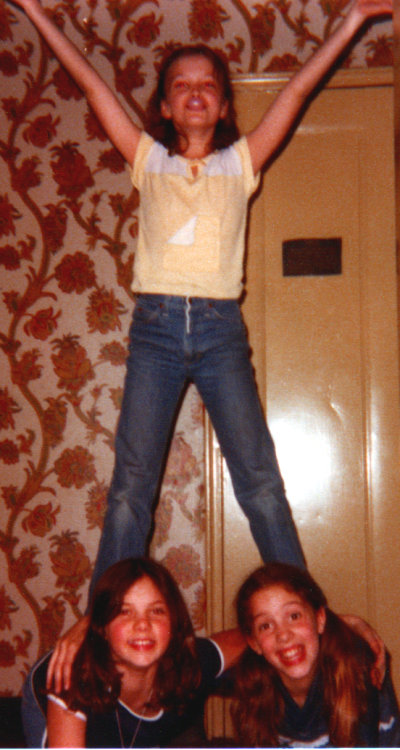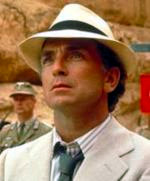[This post is participating in 12 Grand In Checking’s New York In the Movies Blog-a-thon.]
There are endless numbers of movies in which New York City is the star: New York as we’ve always imagined it; New York as we wish it really was; New York as we fear it actually is or might become. This is not about any of those movies.
I grew up in New York City, and by the time I left it to go to college I had an ample collection of authentic New York experiences under my belt. I explored every nook and cranny of the subway system. I told a cab driver to “step on it” and then hung on for dear life. I ate at Horn & Hardart’s. I outwitted muggers. I hung out at Greenwich Village coffee shops past midnight. I rode my bicycle hell-for-leather through midday traffic. I took my prom date on a horse-and-buggy ride up Sixth Avenue and through Central Park. In the middle of a discussion with my friends of the parallels between The Warriors (a New-York-as-we-fear-it-actually-is movie) and Homer’s Odyssey, a complete stranger joined in and explained that the more apt classical comparison was with a work called Xenophon’s Anabasis.
So when I got to college in Pittsburgh I felt smugly cosmopolitan. Pittsburgh was a podunk backwater by comparison, and the people I met there — the first people I ever knew who weren’t from New York — were country bumpkins sorely in need of being edified by me about the marvels they’d been missing by lacking a big-city upbringing. Honestly, it’s a wonder I made as many friends there as I did. For a time I was insufferably superior about having come from New York.
One day, I made a remark along these lines to my friend Mike, something about how he, being only from Rochester, NY, should take my word about something or other since I was from New York City. It wasn’t the first such remark I’d made, but it finally crossed the line for Mike, and he called me out. I wish I had a transcript of exactly what he said. I remember it both as very perfunctorily putting me in my place and also as encompassing all of the following points:
- Though New York City may contain many things to see and do, they are still only a small fraction of all the things there are in the world to see and do;
- Though growing up in New York City may provide a broader perspective on the world than growing up elsewhere, it is still only a single perspective;
- Though very many people live and work in New York City, it is still only a small fraction of all the people in the world; and
- Most of the other people in the world don’t go around saying that they know better than everyone else just because of where they’re from.
I don’t know if this was the first time my arrogant attitude was directly challenged, or just the first time that it got through to me. Either way, it had the desired effect, and then some. I recognized the validity of Mike’s criticism and took it to heart. No one ever heard that sort of elitism from me again — an improvement in my personality for which I will be forever grateful to Mike. Moreover, I began to open up to the charms of Pittsburgh. Before long I felt completely at home there, where previously I had only ever measured it against my memories of New York and found it wanting.
All of which is just preamble to the point I want to make about New York. When Mike gave me that much-needed dressing down he made me feel distinctly provincial, which at first struck me as an odd way for someone from The Big Apple to feel. The City That Never Sleeps! Gotham! But I had to admit that my worldview, and that of most of the other New Yorkers I’d left behind, was as insular, as parochial, as uncultured in its way as that from any one-horse hick town.
And that’s when my idea of New York began to change. It wasn’t really the teeming, glitzy metropolis that everyone always claimed, any more than Norma Jean was really Marilyn Monroe. At heart New York City was actually the world’s biggest small town — or rather, the biggest collection of small towns, jammed close together.
It’s hard to nail down just what I mean by that, but that’s where movies come in. Offhand I can think of a few films that capture the Norma Jean face of New York City, so you can see what I mean without my having to strain my writing muscles.
A movie like Woody Allen’s Manhattan does not capture it, because it makes the city bigger than the people in the story. It’s a New-York-as-we’ve-always-imagined-it movie. A movie like the little-seen Rich Kids, on the other hand, does. It can be set in no place other than New York, but not because New York makes the characters be who they are — the characters make New York what it is.
Neil Simon was good at this kind of New York story, and ironically the main characters in his best one, The Goodbye Girl, aren’t even New Yorkers! Marsha Mason’s character is from Cincinatti; Richard Dreyfus’s is from Chicago. But their banter is a big part of what makes New York the city it is. Quinn Cummings, even more so.
Martin Scorsese’s movies almost qualify for inclusion but rely too heavily on the violent (Mean Streets, Taxi Driver) and the bizarre (Taxi Driver, After Hours) to really capture my New York — the real, personal, cozy New York of my youth, the New York made primarily of neighborhood people and not of melodrama. On the other hand, Eyewitness and Dog Day Afternoon do qualify. Even though each contains some melodramatic crime and violence elements, they are both populated by actual New Yorkers: outspoken, ethnic, irritable, big-hearted in spite of everything; people who thoroughly inhabit their own small communities that form the patchwork quilt of the city.
It’s strange: Hero At Large captures my idea of small-town New York, but Turk 182! does not. Both are lighthearted comedies about anonymous heroes whose exploits capture the imagination of the entire city, but it’s instructive to see how Timothy Hutton and Robert Urich, the brothers in Turk 182!, fail to embody the things about New York that I’ve been talking about despite their obvious efforts at characterization, while John Ritter and Anne Archer, whose acting skills are blander, nevertheless succeed in Hero At Large on pure heart.
I’m sure I’ve failed to convey my point very well, but if you watch some of the movies I’ve named, maybe you’ll understand what I mean. Or maybe it’s only possible to understand that feeling about New York if you grew up there in the 1970’s, when giant retail chains did not yet dominate the landscape and perhaps it really was more of a small town than it is today.
 I don’t know how my mom ever got me to watch the film 1776 in the first place. Probably it was by turning it on to watch it herself and relying on the hypnotic spell of the TV to pull me in. Ever since she did, I have spent a large part of my life trying — and failing, mostly — to persuade others to see it too. You see, the movie is almost impossible to describe without making it sound like “eat your vegetables” or “floss your teeth” or “do your homework” — something boring but essential because it’s good for you (shudder), even though it’s actually as entertaining a two hours as you’re ever likely to spend. Its educational value is just a nice little plus.
I don’t know how my mom ever got me to watch the film 1776 in the first place. Probably it was by turning it on to watch it herself and relying on the hypnotic spell of the TV to pull me in. Ever since she did, I have spent a large part of my life trying — and failing, mostly — to persuade others to see it too. You see, the movie is almost impossible to describe without making it sound like “eat your vegetables” or “floss your teeth” or “do your homework” — something boring but essential because it’s good for you (shudder), even though it’s actually as entertaining a two hours as you’re ever likely to spend. Its educational value is just a nice little plus. Franklin.
Franklin. Jefferson.
Jefferson. Adams.
Adams.

 Inevitably Andrea raised the question, “Did that guy ever do anything else?” referring to Paul Freeman, the actor who turned in a memorable performance as Belloq, Indy’s Nazi-collaborating rival.
Inevitably Andrea raised the question, “Did that guy ever do anything else?” referring to Paul Freeman, the actor who turned in a memorable performance as Belloq, Indy’s Nazi-collaborating rival.